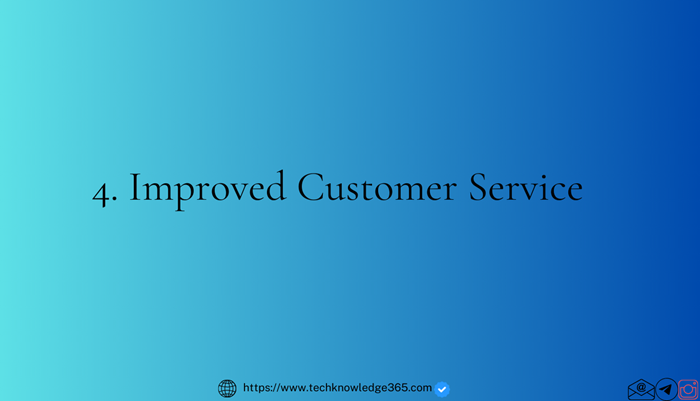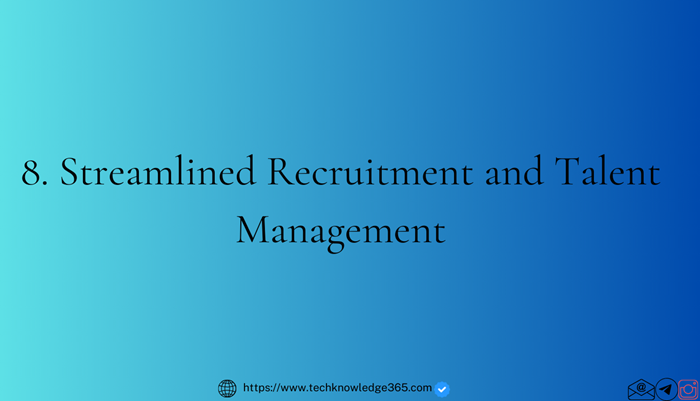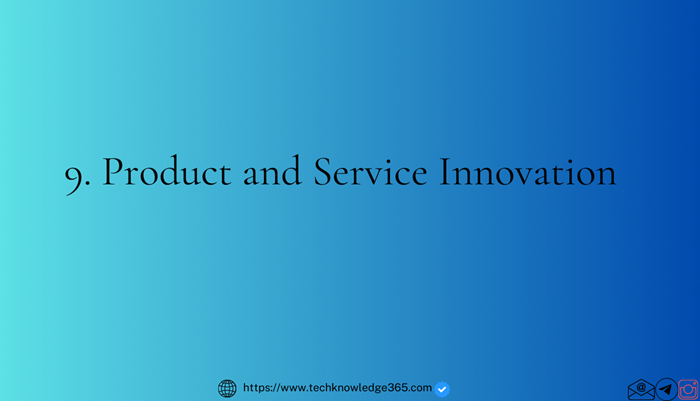Table of Contents
ToggleHow Artificial Intelligence Helps Businesses?

Table of Contents
How Artificial Intelligence Helps Businesses
Artificial Intelligence (AI) has revolutionized the way businesses operate, transforming traditional processes and creating opportunities for growth and innovation. From automating mundane tasks to enhancing customer experiences, AI has become an indispensable tool for companies across various industries. This article explores how AI helps businesses by improving efficiency, fostering innovation, and delivering better results.

1. Enhanced Decision-Making
AI empowers businesses to make data-driven decisions by analyzing vast amounts of information quickly and accurately. Advanced AI algorithms process complex datasets, identifying patterns and trends that humans might miss. For instance, predictive analytics allows businesses to forecast market demands, customer preferences, and potential risks, enabling proactive decision-making.
AI-powered tools like business intelligence software provide actionable insights in real time, helping leaders make informed strategic decisions. By reducing reliance on guesswork, businesses can improve their competitive edge and respond effectively to market changes.

2. Automation of Repetitive Tasks
One of the most significant advantages of AI is its ability to automate repetitive and time-consuming tasks. This not only boosts efficiency but also allows employees to focus on high-value activities that require creativity and critical thinking.
For example, in industries like manufacturing, AI-driven robots streamline production lines, ensuring consistent quality and faster output. In the corporate world, AI tools like chatbots handle routine customer queries, appointment scheduling, and email responses, reducing workload and improving productivity.

3. Personalized Customer Experiences
In today’s customer-centric world, personalization is key to building loyalty and driving sales. AI enables businesses to deliver highly personalized experiences by analyzing customer data and predicting their needs.
E-commerce platforms like Amazon and Flipkart use AI algorithms to recommend products based on browsing history, purchase patterns, and preferences. Similarly, AI-driven marketing tools create tailored email campaigns and advertisements that resonate with individual customers, resulting in higher engagement and conversion rates.
AI-powered customer relationship management (CRM) systems also help businesses manage customer interactions more effectively, ensuring timely responses and personalized support.

4. Improved Customer Service
AI has transformed customer service by making it faster, more efficient, and accessible 24/7. Chatbots and virtual assistants powered by natural language processing (NLP) can handle a wide range of customer queries, from answering FAQs to troubleshooting complex issues.
AI-driven tools ensure customers receive instant assistance, reducing wait times and improving satisfaction. Additionally, sentiment analysis tools enable businesses to gauge customer emotions, helping them address concerns more empathetically and improve their overall service quality.

5. Cost Savings and Resource Optimization
AI helps businesses save costs by optimizing resources and reducing waste. By automating processes, companies can minimize human errors, lower labor costs, and maximize efficiency.
In supply chain management, AI algorithms predict demand, optimize inventory levels, and streamline logistics, reducing unnecessary expenses. For instance, AI-powered tools like predictive maintenance systems help businesses monitor equipment health, preventing costly breakdowns and downtime.
AI also optimizes energy consumption in industries like manufacturing and real estate, contributing to sustainability while cutting operational costs.

6. Boosting Marketing and Sales Strategies
AI has become a game-changer in marketing and sales, enabling businesses to understand customer behavior and create targeted campaigns. Tools like machine learning and predictive analytics analyze customer data to identify trends, segment audiences, and predict future buying behavior.
AI-driven tools like recommendation engines and dynamic pricing strategies ensure businesses stay competitive by offering the right products at the right time and price. Additionally, sales teams benefit from AI-powered CRM systems that prioritize leads, predict closing probabilities, and suggest the best communication strategies.

7. Enhanced Cybersecurity
As cyber threats become more sophisticated, businesses are turning to AI to bolster their security measures. AI-powered systems can detect and respond to threats in real time, minimizing the risk of data breaches and cyberattacks.
Machine learning algorithms analyze network traffic patterns to identify anomalies and potential threats. Tools like biometric authentication and facial recognition enhance access control, ensuring sensitive data is protected.
By continuously learning and adapting to new attack vectors, AI helps businesses stay one step ahead of cybercriminals.

8. Streamlined Recruitment and Talent Management
Recruitment is a time-intensive process, but AI simplifies it by automating candidate screening, resume analysis, and interview scheduling. AI-powered tools like applicant tracking systems (ATS) identify the most suitable candidates based on predefined criteria, reducing bias and improving hiring efficiency.
In addition, AI helps businesses manage talent more effectively by analyzing employee performance, identifying training needs, and predicting potential attrition. This ensures companies can retain top talent and foster a productive workforce.

9. Product and Service Innovation
AI drives innovation by enabling businesses to develop smarter products and services. For instance, AI-powered IoT (Internet of Things) devices like smart thermostats and wearables enhance user convenience and satisfaction.
In the automotive industry, self-driving cars powered by AI are reshaping transportation. Similarly, AI-driven tools in healthcare, such as diagnostic systems and personalized treatment plans, are revolutionizing patient care.
By leveraging AI, businesses can stay ahead of the competition and meet evolving consumer demands with cutting-edge solutions.

10. Efficient Supply Chain Management
AI has transformed supply chain operations, making them more efficient and reliable. Predictive analytics helps businesses forecast demand accurately, ensuring optimal inventory levels and preventing overstocking or stockouts.
AI-powered tools also improve logistics by optimizing delivery routes, reducing transportation costs, and ensuring timely shipments. Additionally, AI-driven quality control systems identify defects in real time, minimizing waste and maintaining product standards

11. Scalability and Adaptability
AI enables businesses to scale operations effortlessly by automating processes and handling increased workloads. Cloud-based AI solutions provide on-demand scalability, ensuring businesses can adapt to changing demands without significant investments.
For startups and small businesses, AI tools offer affordable solutions to compete with larger players, fostering innovation and growth.

12. Data Monetization
In today’s data-driven world, businesses can leverage AI to monetize their data effectively. By analyzing customer behavior, preferences, and trends, AI generates valuable insights that can be used to create new revenue streams.
For instance, businesses can sell anonymized data insights to third parties or use them to launch new products and services tailored to customer needs.
Real-World Examples of AI in Business
- Amazon: Uses AI for product recommendations, supply chain optimization, and warehouse automation.
- Netflix: Employs AI to personalize content recommendations, enhancing user engagement and retention.
- Tesla: Leverages AI for self-driving technology, improving vehicle safety and user experience.
- Zomato: Uses AI to predict delivery times, recommend restaurants, and improve customer satisfaction.
- HDFC Bank: Implements AI chatbots for instant customer support and fraud detection.
Challenges in Adopting AI
Despite its benefits, adopting AI comes with challenges. High implementation costs, lack of skilled professionals, and ethical concerns regarding data privacy and algorithm bias are some obstacles businesses face.
To overcome these challenges, companies must invest in employee training, choose ethical AI practices, and partner with reliable AI solution providers.
Conclusion
Artificial Intelligence has become a cornerstone of modern business operations, offering unparalleled benefits in efficiency, innovation, and customer satisfaction. By automating processes, enabling data-driven decisions, and driving innovation, AI helps businesses remain competitive in an ever-evolving landscape.
As AI technology continues to advance, its potential to transform industries will only grow. Businesses that embrace AI today are not just preparing for the future—they are creating it. Whether it’s through enhanced decision-making, personalized customer experiences, or innovative products, AI is reshaping the way businesses operate, unlocking opportunities for success in the digital age.
See More…
About Author:
Hello, I’m md ghulam ahmad, and I’m the founder of techknowlwdge365.
I’ve always been passionate about writing, and in college, I wrote a lot of content for my school’s website. After graduating, I pursued that passion professionally by creating content for small businesses.
I love what I do because it allows me to use my writing skills in a way that is directly applicable to people’s lives. My clients are all so grateful for the work that I do for them, and I feel so lucky every time someone tells me how much they appreciate my work.
I look forward to hearing from you!



